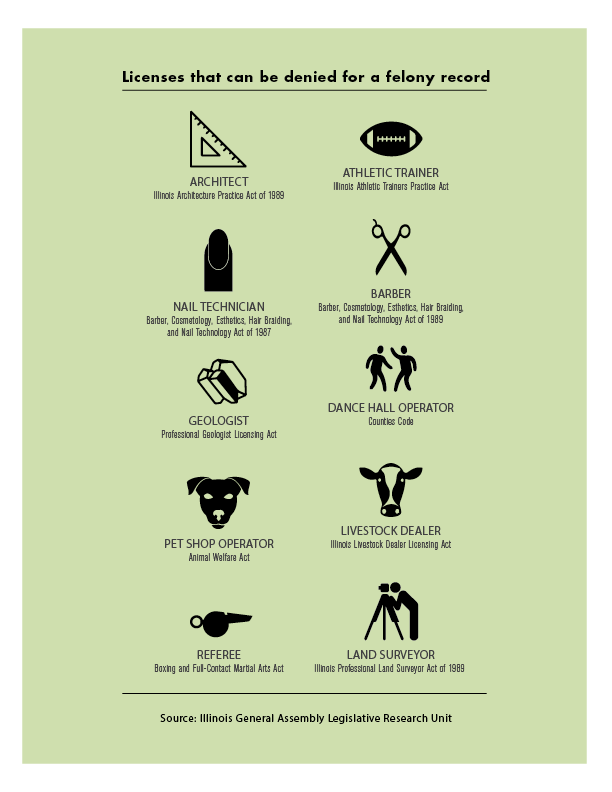Illinois’ occupational licensing laws undermine ex-offender rehabilitation
To get ex-offenders back to work and reduce crime, Illinois needs to lift restrictions on the right to earn a living.
No one can be a productive, contributing member of society without the ability to find work and put food on the table.
This is especially true for ex-offenders when they leave prison to re-enter society. Employers can be reluctant to hire someone if they have reason to think – rightly or wrongly – that a job applicant could be untrustworthy or would somehow put customers at risk. One study in New York conducted by the National Institute of Justice showed that ex-offenders were 50 percent less likely to receive callbacks or job offers than applicants without criminal records.
But Illinois is making this problem worse than it needs to be: The state restricts anyone with a criminal record from obtaining at least 118 different occupational and business licenses. Counties and localities often put up additional barriers of their own.
Right now, the state can deny licensure to an ex-offender for professions such as dance-hall operator, geologist, dietitian, roofer, sports agent and even barber.
Many licenses do not even provide a time period after which the restrictions can be lifted. The restrictions also cover many positions that do not have a public-safety element.
This is a mistake. Ex-offenders with steady employment are much less likely to return to crime. This is particularly true for skilled positions: The University of Minnesota found in astudy that ex-offenders who held skilled jobs – jobs that require training or licensing – were 11 percent less likely to recidivate than former offenders who held low-skill jobs such as food-service positions. But even these jobs prevent recidivism more effectively than having no job at all. That’s especially important in a state like Illinois, which has a nearly 52 percent recidivism rate.
By tailoring its occupational licensing provisions, Illinois could leave in place restrictions needed to protect vulnerable populations while providing more career options for ex-offenders. This would result in a lower recidivism rate for the state.
Any restrictions that remain should have expiration dates so that ex-offenders are eventually allowed to apply for licenses. Occupations that completely ban felons should change these restrictions to allow for case-by-case decisions. Additionally, the list of occupations that ban or restrict offenders from obtaining licenses should be reconsidered to remove occupations for which there are no obvious public-safety risks.
It is worth considering how much tax revenue Illinois loses when ex-offenders are shut out of jobs by occupational-licensing laws. For example, the median salary for a barber in Chicago is $30,584.67. For every person prohibited from working in this field, Illinois loses about $1,423 in annual state income-tax revenue.
Illinois can’t afford to keep denying opportunities for financial stability and advancement to ex-offenders.

